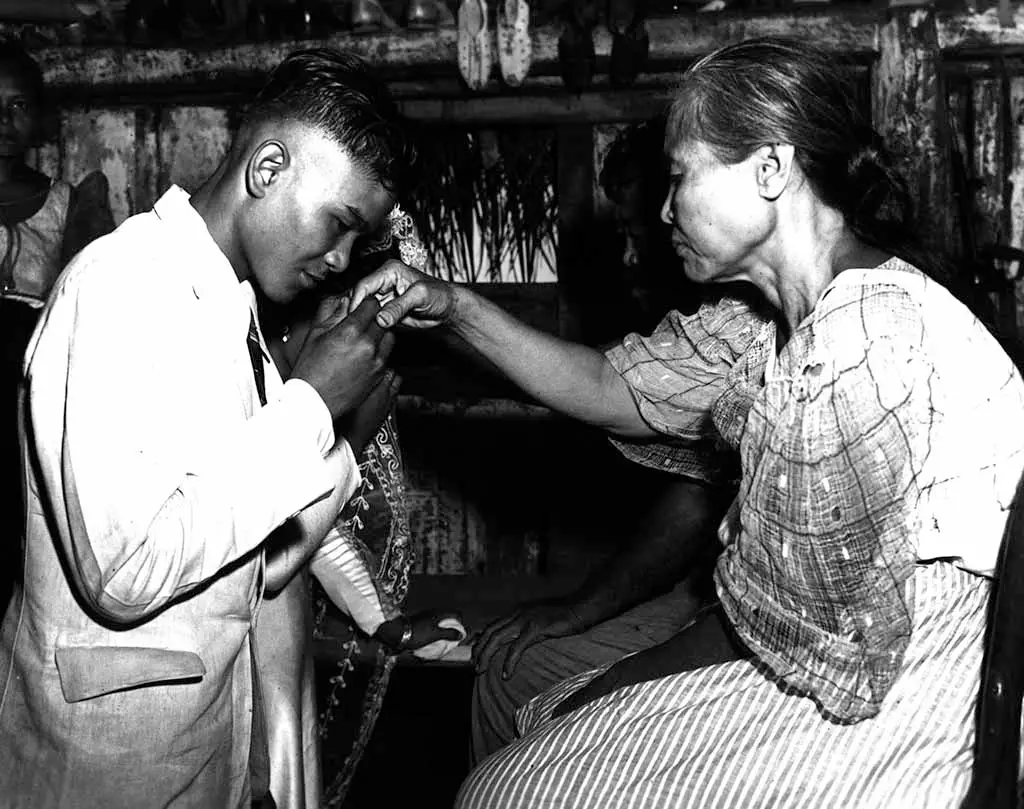
Honoring elders
Nginge’ is a term that describes the smelling or sniffing of the back part of an elder’s slightly raised right hand. Elders, or manåmko, collectively understood to have wisdom, are called mañaina. The Chamorro/CHamoru practice of smelling or sniffing was a way of taking in the essence of one’s spirit and pre-dates colonization.
A kind of ritual among Chamorro people, this “smelling of the hand” is still often done upon meeting, as recognition of the importance of showing respect and honor toward elders.
In a slightly bowed position, the giver of this gesture utters either ‘ñora,’ derived from the Spanish ‘señora’ or ‘ñot,’ derived from the Spanish ‘señor,’ for female and male elders, respectively. When this is done, the receiver responds by saying, ‘Dioste ayudi’ or ‘God help you.’
In recent times this custom of showing respect has evolved to include sniffing or kissing the cheek of an elder with the same greeting and response.
This custom symbolizes a living cultural institution of respect in Chamorro society.
For further reading
Cunningham, Lawrence J. Ancient Chamorro Society. Honolulu: Bess Press, 1992.
Forbes, Eric, OFM Cap. “Man Nginge’.” paleric (blog), 21 April 2016.
Iyechad, Lilli Perez. “Death: The Expression of Grief.” In An Historical Perspective of Helping Practices Associated with Birth, Marriage and Death Among Chamorros in Guam. Lewiston: Edwin Mellen Press, 2001.
Topping, Donald M., Pedro M. Ogo, and Bernardita C. Dungca. Chamorro-English Dictionary. Honolulu: University of Hawai’i Press, 1975.
